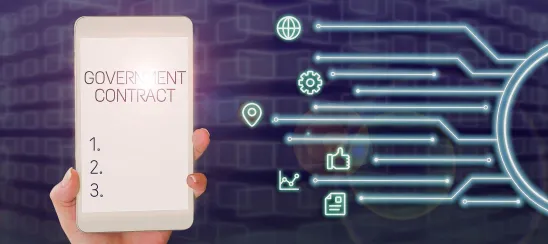Effective January 1, 2023, certification of veteran-owned small businesses (“VOSBs”) and service-disabled veteran-owned small businesses (“SDVOSBs”) moved from the Department of Veterans Affairs’ (“VA”) Center for Verification and Evaluation (“CVE”), to the Small Business Administration’s (“SBA”) Veteran Small Business Certification Program (“VetCert”). Previously, VOSBs and SDVOSBs only needed to be independently verified for VA sole-source and set-aside awards – for procurements by all other federal agencies, SDVOSBs could self-certify without an outside review. The final rule, published November 29, 2022, but effective January 1, 2023, shifts the venue to SBA while also implementing four key requirements from the National Defense Authorization Act for Fiscal Year 2021, as discussed below.
1. VA-Verified VOSBs and SDVOSBs Are Deemed SBA-Certified for the Remainder of Their Eligibility Term, with an Additional One-Year Extension
Any SDVOSB or VOSB verified by the VA Center for Verification and Evaluation prior to January 1, 2023 will be deemed SBA-certified for the remainder of the business’ three-year eligibility term (if the business continues to qualify). Additionally, SBA intends to grant a one-time, one-year extension to current VA-verified VOSBs and SDVOSBs that will be added to the eligibility term of current verified small businesses. But any new VOSBs or SDVOSBs applying for SBA certification will receive only a three-year eligibility term.
2. One-Year Grace Period for Self-Certified SDVOSBs to Apply for SBA Certification
Self-certified SDVOSBs have a one-year grace period – until January 1, 2024 – to apply for SBA certification. In the meantime, SDVOSBs can continue to self-certify for non-VA government contracts until SBA makes a final eligibility determination. (For VA procurements, however, there is no grace period; SDVOSBs must be certified in order to be eligible for VA set-asides). As of January 1, 2024, any SDVOSB that does not have a pending certification application at SBA (or that has not been SBA-certified), will be ineligible for sole-source or set-aside federal procurements.
3. SBA Applications Open Now Available
SBA has a new certification application portal for VOSBs and SDVOSBs, which is available for use now: https://veterans.certify.sba.gov/. Much like the previous VA process conducted through the VA’s Center for Verification and Evaluation, businesses will have to provide proof of eligibility. In other words, a business will have to demonstrate that it is: (a) a small business per the applicable size standards at 13 C.F.R. Part 121; and (b) unconditionally owned and controlled by one or more veterans, including service-disabled veterans, as needed.
4. SBA Makes Eligibility Requirements Less Restrictive
To qualify as a VOSB or SDVOSB, the basic parameters remain the same as they have been in the past: (1) a small business that is (2) at least 51% owned and controlled by one or more veterans or service-disabled veterans (unless an exception relating to active duty, disability, or death applies). The requirements for the new SBA-certification are in 13 C.F.R. Part 128, and largely mirror existing VA verification requirements, with a few noteworthy modifications making eligibility easier as a practical matter:
- Requirement for the veteran-owner(s) to be of “good character” is eliminated. Whether the qualifying individual is incarcerated, or on parole or probation, will be a responsibility issue determined by the contracting officer as part of a specific procurement – not an eligibility issue to be considered in the first place by SBA.
- Non-veteran owners may have a commercially reasonable right of first refusal. Previously, the SBA Office of Hearings and Appeals had determined that a SDVOSB was not unconditionally-owned by a service-disabled veteran where a non-veteran had a right of first refusal to purchase all or part of the company’s shares. This often made non-veteran investors hesitant to invest because the non-veteran not only did not control the company, but the non-veteran also had no guarantee that the investment could be adequately protected over the long term. This new change should make it easier for VOSBs and SDVOSBs to partner with non-veteran investors who will be better able to protect their minority investments in the company. 13 C.F.R. 128.202(b)(3).
- Less Restrictive Veteran Control Requirements. To harmonize the new regulations with requirements for women-owned small businesses and 8(a) business development program participants, the SBA has revised the non-exhaustive list of circumstances that may indicate “control” by a non-veteran, and has loosened requirements regarding outside employment and normal business hours. The SBA also has removed the presumption that a service-disabled veteran does not control the business unless he or she lives within a reasonable commute of the company’s headquarters and/or job-site locations. The previous regulations specified that the ability to communicate via phone and email while delegating management responsibility was not an adequate justification to prove day-to-day control. As businesses continue to embrace remote or flexible working arrangements this should be a welcome – and self-evident – change.
In sum, the new regulations make VOSB and SDVOSB eligibility more consistent with other small business programs, centralizing the certification review with the SBA. Less restrictive regulations should enable more veterans and service-disabled veterans with a better opportunity to enter the government marketplace, imposing rational limits on the business owner while avoiding irrational and silly requirements that emphasize form over substance when it comes to owning and controlling the small business. And, allowing non-veteran investors a right of first refusal should allow more investment in veteran-owned small business because investors will be able to take comfort in being better able to protect their assets.
The federal government has an annual goal of spending at least 3% of contracting dollars on SDVOSBs. As we discussed previously, the government routinely exceeds this goal, spending approximately $25 billion in FY 2021 (4.41%). These new changes should slightly reduce the barrier to entry for VOSBs and SDVOSBs – at least at the VA – which potentially is one way to combat the increasing consolidation, rather than proliferation, of small business government contractors we have been seeing over the past few years. Importantly, the VA, by statute, has to give VOSBs and SDVOSBs contracting priority for most procurements as long as there are at least two qualifying small businesses that can offer the products or services at a fair price (the “Rule of Two”). 38 U.S.C. § 8127(d). And, assuming self-certified SDVOSBs that were competing for non-VA procurements actually met the requirements, these rules merely create an additional hurdle but do not create any additional barrier to entry or eliminate any eligible small businesses from government contracting. Hopefully the SBA certification process will be better-positioned to promote and foster VOSB and SDVOSB federal contracting.



 />i
/>i

